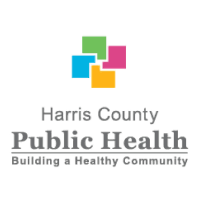Heart disease is a term used to refer to several types of heart conditions. The most common type of heart disease in the United States is coronary artery disease (CAD), which affects the blood flow to the heart. Reduced blood flow can lead to a heart attack.
Sometimes, heart disease may not show any signs or symptoms until a person actually experiences a heart attack, heart failure, or arrhythmia in real time. When these events happen, symptoms may include:
- Heart attack: Chest pain or discomfort, upper back or neck pain, indigestion, heartburn, nausea or vomiting, extreme fatigue, upper body discomfort, dizziness, and shortness of breath.
- Arrhythmia: Fluttering feelings in the chest (palpitations).
- Heart failure: Shortness of breath, fatigue, or swelling of the feet, ankles, legs, abdomen, or neck veins.
High blood pressure, high blood cholesterol, and smoking are key risk factors for heart disease. Additionally, several other medical conditions and lifestyle choices can increase the risk of developing heart disease, including:
- Diabetes
- Being overweight or obese
- Unhealthy diet
- Lack of exercise
- Excessive alcohol use
You can take several steps to help prevent heart disease and adopt a heart-healthy lifestyle. Some of these steps include:
- Choose healthy foods and drinks: Eat fresh fruits and vegetables over processed foods.
- Maintain a healthy weight: Carrying extra weight on the body can put additional stress on the heart and blood vessels.
- Stay active: Physical activity can help you maintain a healthy weight and lower your blood pressure, cholesterol, and blood sugar levels. Adults should exercise at least 2.5 hours per week, and children should be physically active at least 1 hour per day.
- Manage your medical conditions: Control high cholesterol, blood pressure, and diabetes to lower heart disease risk.
- Quit Smoking and limit alcohol: Smoking and excessive drinking greatly increases your risk for heart disease.
- Have regular medical checkups: Regular checkups focus on early disease detection and can help find health concerns before they become serious; they are not the same as visits for sickness or injury.
HCPH’s Health Services division provides routine healthcare exams, including blood pressure, cholesterol, and diabetes screenings, as well as other physical exams. These services are free, or very low-cost to residents. HCPH also offers free Chronic Disease Prevention education through its Nutrition and Physical Activity Program, Tobacco/Vaping Prevention and Cessation Program, and Diabetes Prevention Program. These programs educate individuals on how to lower their risk of heart disease by adopting healthier eating habits, increasing physical activity, quitting smoking, learning how to reverse pre-diabetes, and more.
To schedule an appointment with HCPH’s Health Services, call (832) 927-7350. To get connected to the Chronic Disease Prevention programs, call (713) 439-6000. To learn more about reducing your risk of heart disease and learn about available resources, please visit hcphtx.org or cdc.gov.


